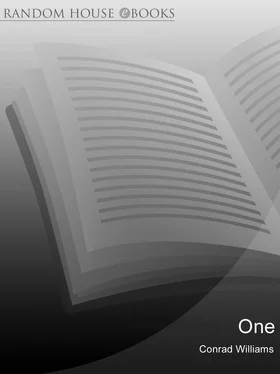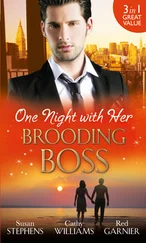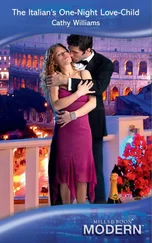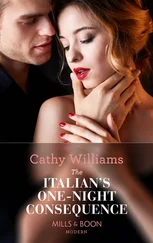Jane crossed the railway and spotted a pub on the other side of the dual carriageway. The planes of roofs were like broken solar panels. A tree burned. The mist north of here was thickening, congealing almost, like something that he might have to peel off his skin should he be captured by it. To the south the sky was more fluid. It moved constantly. Cables of rain glittered from it like guys slung to the earth. Out to sea the waves were still churning; their roar a persistent complaint over the noise of his own breath. The mist shifted again, lifting slightly, enough to show him a suggestion of hills to the north, shoulders turned away from him. The mist closed in again as if it were teasing him with glimpses of things forbidden.
Jane hurried across the road. He could hear his breath hissing in the regulator. He wondered if he was panicking or in the early stages of shock, but he couldn't tell; he had no frame of reference. There was nobody to talk to, nobody against whom he could gauge his level of fragility. Nobody to give him an askance look. Not that anybody would be in any fit state themselves to decide what was normal any more. Panic might now well be the new default setting.
He pushed through the door into the lounge bar as the mist sweated in the air behind him, as though eager to assume form. A cleaner lay on the floor in a pale blue pinafore now several sizes too small for her. Her face was that of someone beaten featureless; everything was lost to a uniform swelling. Her cheeks shone, at splitting point. Jane felt the world tilt a little, as if he were in a fast lift that had just begun to ascend. His vision vignetted. He closed his eyes. He must get used to this. There were bound to be others. Christ, where were the emergency services? He felt, like a blow to the gut, the suspicion that this village, maybe even the entire north-east coastline, had been closed off, quarantined. What could have caused this? It was a question that kept tapping him on the shoulder; every so often he felt he had to turn to confront its ugly little face, but he couldn't provide any satisfactory answers. Terrorism, he thought again. If so, they'd succeeded. He was scared beyond feeling. The nuclear power plant at Dounreay? Meltdown? A nuclear sub off Cape Wrath playing war games? Could an exploded sub rip the skin off the face of Scotland like this? He was no defence expert, but he didn't think so. Something natural, then? Some catastrophic event?
He stared at the bruised air streaking by the windows, the glittering sediment piling into the corners. This didn't look natural; this was a storm on Venus. This was Ray Bradbury.
He was on his knees. His left leg was pinning the cleaner's left arm to the floor. The added pressure had caused her clenched hand to open; clear fluid sweated from the tips of her fingers like glue bubbling from the sponge applicator of a UHU pen. He couldn't breathe.
He swung the O 2gauge in front of his face and blearily registered that he was in the red, sucking on the tank's dust. He fumbled the bicycle mask from his backpack and held his breath, spat out the regulator, took off his face mask and clamped the filter over his nose and mouth. He breathed. There was a smell of burning, and something underpinning it, something chemical. His sight cleared, his lungs loosened. At least there was still something left to breathe in the midst of all this smog.
Behind the bar he drew a double whisky from an optic and gulped it quickly before replacing the mask, relishing the hot fumes that were trapped inside. He moved down a corridor to the doorway to the toilets. To his left was a door leading into the beer garden. Somebody was dead out there. He could just see a pair of legs sticking out from the side of a Vauxhall Corsa. To his left was a door under the stairs. A bolt on it was drawn back, an unhinged padlock hanging off the hasp. He flicked the bakelite switch above the banister without thinking and descended slowly in utter darkness.
Jane called out when he reached the bottom of the stone steps. His voice was loud and flat and scared. Nothing replied. He reached out with his hands and moved into a cool room. His foot clanged against what he assumed was a beer keg. Further on there were crates of bottles and a wooden door. He pushed against it. Inside there were plastic containers, mops, brushes, heavy tins. He felt along the walls for a resting bike, but there was nothing. Light filtered through the cracks in the delivery chute and shapes began to solidify. A chest freezer filled with melted sacks of ice. A fuse box on a wall next to a graphic of a skeleton being electrocuted. A deckchair. A child's scooter.
Jane unfolded the deckchair and sat down. He thought about going upstairs, checking the bedrooms, but he didn't know what for. All he knew was that he would find more bodies, and he didn't want to look at a dead child.
His hand went to his pocket and felt the edges of Stanley's letter. Stanley had been asking for a scooter, as well as a bike without stabilisers, a skateboard . . . all kinds of stuff. His 'I want' phase. There were all kinds of petty aches that broadsided you as a parent. It pierced Jane that Stanley didn't want to watch the programmes aimed at his age group on TV. Dora the Explorer. Pingu. Noddy. A couple of weeks at reception and he was coming home talking about Power Rangers and Ben 10 and Darth Maul kicking people in the face. Guns and punches. He was calling people stupid and poo-head . He was a boy growing up, that was all, but it was tough to stomach sometimes. Innocence eroding. You could see it in the darkening intelligence of his eyes and the disappearance of his pudgy cheeks. The baby's clean blackboard was filling up with chalk marks. Dad? When you called that man in the car a tit, what means tit?
He wondered if London was aware of what was going on up here. It was such a terrible occurrence, perhaps Whitehall was shielding the public from the truth.
Jane peeled off the gloves and touched his face, his hair. He felt normal, if a little hot and sweaty. He considered how he felt inside. He was hungry, which was a good thing, he thought. He didn't feel nauseous. Apart from the burns on his hands where the gloves had melted, there were no blemishes on his skin. No headaches, or rather, no pains inside his head that couldn't be dismissed by a couple of co-codamol.
He unclipped the lid of the First Aid box and cleansed the skin of his hands with an alcohol wipe. There was an unbroken tube of antiseptic cream; he applied some of that too. Care needed to be taken now. If he fell and broke his leg there was nobody around to cart him off to A&E. And he didn't relish the prospect of any wounds sucking the filth of the sky into them. Slow and sure.
He peeled back the lid on a tin of baked beans and guzzled them straight down. He followed them with a tin of peaches. He found a crate of Pinot Noir and unscrewed a bottle top.
He and Cherry had discussed death, early on, when things had been good between them and dying naturally at an old age seemed something that one of them would do with the other close by. But they had also talked about what-ifs. They had both written private letters to Stanley and sealed them without reading each other's words. In the event that one of them died prematurely, Stanley would at least have a message from his missing parent, a way of making contact with a son who might otherwise have no recollection of a dead mother or father.
Jane fell asleep imagining Cherry handing over the envelope to their son.
4. THE GREAT NORTH ROAD
Jane woke suddenly, into terror. The jolt from sleep was down to some external factor, not a bad dream, not a gradual returning from unconsciousness. He knew this feeling: Stanley grizzling in his cot. Cherry knocking over the pot of toothbrushes in the bathroom. A sound had brought him back. Something near. He sat up in the deckchair and felt his muscles complain. No light in the cracks of the delivery chute. The luminous hands of his watch shrugged at him: ten past two in the morning.
Читать дальше












